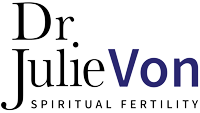4 Reasons Not to Rush Into Assisted Reproductive Therapies
I write articles on fertility for many different websites. Blogs and websites try to grab the reader's attention, which means that they often request a list-type format for articles from writers. Im sure you have seen them everywhere, 5 reasons to do this, 7 reasons that will change your life, etc...
I generally don't mind this format because I am for information getting to the public by whatever means possible.
However, there is something in this writing style that does not sit right with me. It is typically reductionist and by no means does it typically speak for everyone, especially in the realm of woman’s health.
List type writing also tends to focus on the affirmative, by suggesting actionable and simple behavioral modifications that can “make all the difference.” In other words, these articles refer to the real topic but often do not address it head-on and absolutely do not examine the topic in enough depth. That being said, I’m going to use the list method in the post below. In a way, Im choosing the list style because it does grab the reader’s attention. And because this topic is dear to my heart, Im counting on it to serve its purpose.
I do encourage you to think critically, research and examine information for yourself and always contextualize all articles that you are presented with on the internet, especially when it refers to your psychological, spiritual, and physical health.
So here are my 4 reasons why you should carefully consider assisted reproductive therapies:
Children conceived using Assisted Reproductive Therapies such as IVF have a greater outcome of premature birth. The research is not definitive on IVF’s effect on long term cognitive and neurological development and while in continues to be studied, much is still unknown. A recent study says, “The chance of poorer perinatal outcomes are found in ART-conceived children, even for singletons. Infertility is one possible reason, but currently the true mechanism remains unknown.”
Post Partum Depression occurs in 1 out of every 7 woman. While PPD can be experienced by anyone, there are cited correlations between PPD and difficult births or children who require extra medical attention and care. Some studies suggest that the risk of PPD in woman who have undergone IVF is up to 5 times higher. The added stress both financially and on the mother, often exacerbates already exhausted and over taxed systems that are dynamically experiencing hormonal rebalancing.
Suicide is the second cause of death in woman in the post partum period. It is often the saddest story you will hear, the one in which a mother of a young child takes her own life. Post partum depression is very real and while it might not result in the extremes of suicide, woman who suffer from it often suffer silently, even from their doctors and family.
Hormonal drug dosages, blood panels and treatment plans are based off averages. Not every constitution and endocrine system responds the same as the “average” person. Sometimes the underlying physiological cause of infertility can be worsened by standard protocols and while doctors and nurses try their best to be compassionate to each patients experience, some people slip through the cracks or their suffering and concerns are simply not heard. We do not have clear enough data on the long term outcomes of IVF on health. The fact that people respond to IVF differently is one of the reasons the outcomes are difficult to measure, as well as the fact that IVF is still a relatively new treatment.
Photo from Unsplash
For more insights and tips into
Conscious Conception—Check out My Book, Spiritual Fertility
With Love,
DJV


